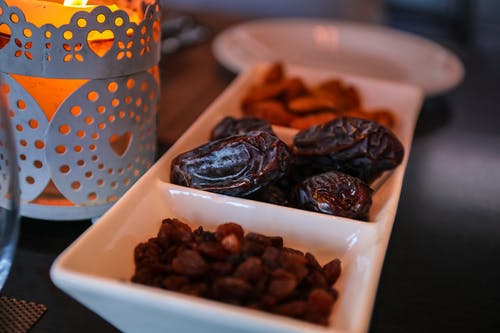Ramadan in Lockdown

Time for repair
Every year Ramadan comes with a different flavour. Although you are fasting in Ramadan but you can still taste its sweetness. It is a favour from Allah which He never gave to any nation before us.
Fasting itself was also prescribed to previous nations, as we know from Surah Al-Baqarah:
O you who have believed, decreed upon you is fasting as it was decreed upon those before you that you may become righteous (2:183)
However the actual month of Ramadan is a gift to our ummah. Unique and special, the beauty of Ramadan is that every year it feels new.
We have been forced to start preparation for Ramadan in advance, and the Prophet (peace be on him) used to anticipate it in Rajab, and prepare even more in Sha’ban.
Ramadan is the month of the first revelation
Aisha (may Allah be pleased with her) narrated that when he reached his 40s, the Prophet (peace be on him) started secluding himself in the cave of Hira. He was searching for the truth with sincerity and deep conviction. Having climbed the rugged mountainside for an hour, he would shelter in the very tight, enclosed space which had a breath-taking view of Makkah. There he used to worship Allah for so many nights, until one blessed day in Ramadan that Jibril came to him.
The Prophet (peace be on him) sought seclusion himself before Ramadan as well as during Ramadan. Today, we find ourselves locked down before Ramadan- though not out of our choice!
Seclusion is a feature of Ramadan
Though we often think of Ramadan as a month of increased interaction with our family and our community at tarawih prayers and at iftaars, we can no longer do these this Ramadan.
Yet, a special feature of Ramadan is eitikaf – which is the sunnah in the last ten days, when the Prophet (peace be on him) would seclude himself. We have been forced into etikaf before Ramadan.
We are not used to secluding ourselves in our homes for any long stretch of time, but now we have been forced to restrict our daily movements, actions and interactions and we do not see an end in sight yet. So the ummah has to take the opportunity.
The strain of lockdown
Many of us are finding the strain of this lock down hard to bear and complaining about the children, the neighbours, the noise and mess, and ongoing demands. We should avoid moaning about the situation even though our situation is difficult and we are facing calamity and hardship we can make the best of it, by being grateful to Allah for all the favours He bestowed on us.
Allah Almighty does not want us to go outside, but go inside. Let’s think of this opportunity positively. Allah made this month for everyone to contemplate.
The opportunity to reflect and connect
We have dropped everything and we are looking after our afiya now. Yes it is a difficult time but it is a time for reflection. We have been procrastinating for so long, and putting off reflecting, but now we have been given the time, what are we going to do?
Be ready to receive the gifts of Ramadan
We can improve our situation. It all depends on our heart and our intention. We need to work on our heart, this is the main receptor where we receive light and mercy and forgiveness from Allah, so we need to declutter and clean our hearts so they receive grace from Allah Almighty.
Ramadan is the month of forgiveness, elevation, connection, communication and transformation.
The Prophet (peace be on him) knew the secrets of the unseen so he encouraged believers to be ready as the Gates of Jannah are flung open and the Gates of Jahanum are locked. Abu Hurairah (May Allah be pleased with him) narrated that the Messenger of Allah (peace be upon him) said:
On the first night of the month of Ramadan, the Shayateen are shackled, the jinns are restrained, the Gates of the Fires are shut such that no gate among them would be opened. The Gates of Paradise are opened such that no gate among them would be closed, and a caller calls: ‘O seeker of the good; come near!’ and ‘O seeker of evil; stop! For there are those whom Allah frees from the Fire.’ And that is every night. (Tirmidhi)
Time to repair
We all have shortcomings, bad habits and have made mistakes or have issues we need to resolve. Ramadan gives us the opportunity to fix these and repair them. Just as many of us have finally done those DIY jobs around the house that were pending for years, now we can fix those issues that have been lurking murkily in the past, unfinished, unresolved.
Repair your relationship with Allah
The first thing we need to fix is our relationship with Allah. We need to improve our worship. This is where we have to apply iyaka na’budu wa iyyaka nasta’een:
You alone we worship and from you alone we seek help. (1:5)
When he used to go to the cave of Hira the Prophet (peace be on him) developed his closeness and bondship with Allah Almighty and this is what we should be seeking right now. The prophetic approach was to seize the opportunity to get close to Allah. To increase recitation of the Quran and become more attentive in salah. This is the right time to fix our salah before Ramadan. This is how we should prepare for Ramadan. Rather than the distracted, rushed autopilot salah.
Submit in sujud
We should be begging Allah Almighty in our Sujud Who said:
wasjud waqtarib ‘prostrate and become closer’. (96:19)
The way we get closer to Allah is through submitting and prostrating. Abu Hurairah May Allah be pleased with him reported that the Messenger of Allah (peace be on him) said:
The nearest a servant comes to his Lord is when he is prostrating himself, so make supplication (in this state). (Muslim)
Qunoot
I take this opportunity to call upon everyone to establish the nawazil qunoot. It is nor restricted to the witr prayer in tarawih; scholars say we can recite this dua in every salah as long as the ummah is afflicted by a huge calamity as we have today. So in our salah (in the fard or Sunnah) we can do Qunut in the final rakah to bring ease to our ummah.
In last Rak’ah after Ruku’ you say:
سمع الله لمن حمده ، ربنا ولَك الحمد
then you raise your hands and make the Du’a Qunoot for relief.
Repair yourself
Then we need to fix our relationship with ourselves. When the Prophet (peace be on him) visited Abdullah bin Amr bin Al Aas who was young, keen and full of love for the Prophet (peace be on him) used to fast every day and do qiyam (night prayers) every night, his wife told the Prophet (peace be on him) what he did. To his surprise the Prophet (peace be on him) was not impressed and did not congratulate him for dedicating himself to so much ibadah. Instead, the Prophet (peace be on him) advised him not to do this, and explained the reason for this as well, saying:
Don’t do that; fast for few days and then give it up for few days, offer prayers and also sleep at night, as your body has a right on you, and your wife has a right on you, and your guest has a right on you. And it is sufficient for you to fast three days in a month, as the reward of a good deed is multiplied ten times, so it will be like fasting throughout the year. (Bukhari)
We are not angels who can worship all the time; we need to get the balance right. We need to fix our relationship with our self.
Repair your relationship with others
We need to ensure we have good relationships with the people in our lives. When there is a conflict between the competing demands of people on our time, who gets priority? Our priority is our parents, then children and spouse, neighbours, colleagues and friends. We need to sort out priorities to ensure we fulfil the rights of others. Each Muslim has 6 rights, the Prophet (peace be on him) taught us:
The rights of one Muslim over another are six… if you meet him, greet him with salaam; if he invites you, accept the invitation; if he asks for advice, give him sincere advice; if he sneezes and praises Allah, say Yarhamuk Allah (may Allah have mercy on you); if he falls sick, visit him; and if he dies, attend his funeral. (Bukhari and Muslim)
Once we get our priorities right, Ramadan gives us a spiritual boost to be more caring and to be of more service to others. Because it is now time to reflect with this calamity we are in the midst of it, so we need to think about our mistakes and shortcomings.
We need to be people of mercy and love and care and support and promote goodness collaborate in beneficial activities.
May Allah Almighty enable us to take stock of ourselves, repair ourselves and make us of those who are close to Him and loved and supported by Him. Ameen
Preparing for Ramadan in a Lockdown -Delivered by Shaykh Haytham Tamim to the City Circle on 18th April 2020
Recommended Posts

Don’t be a Ramadani person – Be a Rabbani person.
April 10, 2024

The test of will – Tarawih Reflections 30
April 09, 2024


